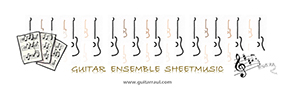Robert pethel
http://scholarworks.gsu.edu/mse_di
In recent decades, guitar education has emerged as a discipline in PreK-12 institutions alongside “traditional” music education such as band, orchestra, and chorus. Despite the substantial body of literature containing practical advice on teaching guitar, research-supported scholarship is lacking. Additionally, this body of literature suggests a lack of congruency between curriculum, pedagogy, and teacher preparation among guitar educators. The purpose of this study was to provide an evidentiary-based understanding of the professional profiles and pedagogic practices of guitar educators. A multi-phase investigation was conducted. In Phase One, a large sample (n = 1,269) of guitar educators participated in the Guitar Educator Questionnaire (GEQ). Findings from the GEQ suggest a low (7.9) percent of music educators who teach guitar class consider themselves to be “guitar specialists.” A substantial number of respondents (68.5 percent) indicated that they rarely or never participated in guitar related professional development, and 76.1 percent of respondents reported that their pre-service training provided little or no preparation for a career in guitar education. A purposeful sample of six “exemplary” guitar educators contributed pedagogy-focused interviews and video teaching samples in Phases Two and Three. Data from the three phases were analyzed according to principles of thematic analysis in order to identify potential pathways toward the continued growth and maturation of guitar education.
professional-profiles-pedagogic-practices-and-the-future-of-guipdf.pdf





